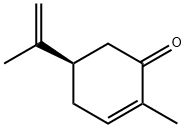L(-)-Carvone: Multifaceted Compounds with Promising Therapeutic Potential
Feb 6,2024
General Description
L(-)-Carvone and its isomeric form, (S)-(+)-carvone, have demonstrated potent antifungal activity against various fungal strains, as well as significant cytotoxic and anti-tumor potential in different cancer cell lines. Additionally, both isomers exhibit strong anti-inflammatory activity, reducing the production of pro-inflammatory cytokines and modulating inflammatory responses both in vitro and in vivo. These findings highlight the potential of L(-)-carvone and (S)-(+)-carvone as candidates for controlling fungal growth, combating pathogenic microorganisms, and as therapeutic agents for cancer treatment and various inflammatory conditions. Further research is needed to explore their clinical applications.
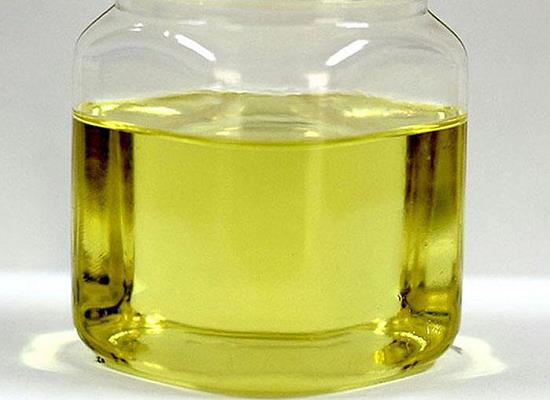
Figure 1. L(-)-Carvone
Anti-fungal activity
Studies have demonstrated the strong antifungal activity of L(-)-Carvone and its isomeric form, (S)-(+)-carvone, against various fungal strains. L(-)-Carvone has shown fungicidal and fungistatic effects against Microsporum audouinii, Trichophyton mentagrophyte, Candida albicans, and Aspergillus niger. Additionally, it has been effective against Candida and Fusarium species. Similarly, (S)-(+)-carvone, derived from Mentha spicata L., has exhibited antifungal activity against Aspergillus niger, Aspergillus flavus, Candida albicans, Microsporum gypseum, Sporothrix schenckii, and others. Both L(-)-carvone and (S)-(+)-carvone have shown inhibitory effects on the growth of Candida albicans at low concentrations and have been effective against a range of other fungal species. Furthermore, carvone has demonstrated high anti-dermatophyte activity, inhibiting the biofilm biomass and metabolic activity of several dermatophyte species. Overall, these findings underscore the potential of L(-)-carvone and (S)-(+)-carvone as candidates for controlling fungal growth and combating pathogenic microorganisms. 1
Cytotoxic and anti-tumor activity
L(-)-Carvone and its derivative Carv have demonstrated significant cytotoxic and anti-tumor potential in various cancer cell lines. Both the (R)-(−)-carvone and (S)-(+)-carvone have been found to inhibit the growth of human leukemia cell line (HL-60), human prostate cancer cells (LNCaP and PC-3), and breast cancer cell lines (MCF7 and MDA MB 231). The (S)-(+)-carvone has also exhibited cytotoxic effects on triple-negative breast cancer cells (BT-20), ovarian cancer cells (SW-629), and gastric cancer cells (AGS). Animal studies have shown that (S)-(+)-carvone has preventive and inhibitory effects on the formation of papillomas and pulmonary adenomas induced by carcinogens. It has also been effective in reducing colon polyps and tumor development in rats induced with colon carcinogenesis. The cytotoxic and anti-tumor activities of L(-)-carvone and Carv have been attributed to different mechanisms such as increased oxidative capacity, regulation of expression of caspases, down-regulation of JAK/STAT3 phosphorylation, and activation of apoptotic pathways. These findings suggest that L(-)-carvone and Carv have potential as therapeutic agents for cancer treatment. Overall, the studies indicate that L(-)-carvone and Carv have a promising future in cancer therapy due to their effectiveness against different types of cancer cells, their low toxicity, and their natural origin. 2
Anti-inflammatory activity
L(-)-Carvone have demonstrated significant anti-inflammatory activity in both in vitro and in vivo studies. Both isomers have been shown to reduce the production of pro-inflammatory cytokines, such as IL-6, TNF-α, IL-1α, IL-1β, and nitric oxide (NO), and inhibit the expression of inducible Nitric Oxide Synthase (iNOS) in various cell types. They also increase the production of IL-10, an anti-inflammatory cytokine, and inhibit Nuclear Factor Kappa B (NF-κB) activation. Furthermore, administration of L(-)-Carvone has been found to effectively reduce pulmonary edema, inflammatory cell production, and modulate the production of pro-inflammatory cytokines in various animal models of inflammatory conditions, including acute lung injury, airway inflammation, neuroinflammation, ulcerative colitis, and arthritis. Additionally, CARV, isolated from different plant sources, has been shown to reduce the production of NO, prostaglandin E2 (PGE2), and the expression of cyclooxygenase-2 (COX-2) and iNOS in macrophages, indicating its anti-inflammatory effects. Overall, the findings suggest that L(-)-Carvone and its derivatives have strong anti-inflammatory properties by reducing the production of pro-inflammatory cytokines and modulating inflammatory responses. Further research is needed to explore their potential clinical applications as therapeutic agents for various inflammatory conditions. 3
Reference
1. Yousef, R.T., Aggag, M.E., Tawil, G.G., 1978. Evaluation of the antifungal activity of some components of volatile oils against dermatophytes. Mycoses 21, 190–193.
2. Nibret, E., Wink, M., 2010. Trypanocidal and antileukaemic effects of the essential oils of Hagenia abyssinica, Leonotis ocymifolia, Moringa stenopetala, and their main individual constituents. Phytomedicine 17, 911–920.
3. Paduch, R., Trytek, M., Kr´ol, S.K., Kud, J., Frant, M., Kandefer-Szersze´n, M., Fiedurek, J., 2016. Biological activity of terpene compounds produced by biotechnological methods. Pharm. Biol. 54, 1096–1107.
- Related articles
- Related Qustion
- L(-)-Carvone: An Comprehensive Review on Health Benefits and Pharmacological Properties Apr 7, 2023
L(-)-Carvone is a member of a family of chemicals called terpenoids and exhibits multiple pharmacological properties such as antibacterial, antifungal, antiparasitic, antineuraminidase activities.
Platinum (Pt) is a chemical element with atomic number 78, located in Group 10, Periodic Table, Period 6. Platinum is a very heavy, precious, silvery-white metal that is soft and ductile, has a high melting point, and has good resistance to....
Feb 5,2024Inorganic chemistryFlibanserin treats hypoactive sexual desire disorder by modulating serotonin and dopamine receptors, improving sexual desire. Clinical trials show efficacy in increasing satisfying sexual events.....
Feb 6,2024APIL(-)-Carvone
6485-40-1You may like
- L (-) -Carvone
-
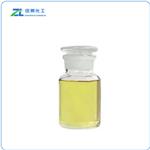
- $120.00 / 1kg
- 2024-04-29
- CAS:6485-40-1
- Min. Order: 1kg
- Purity: 99%
- Supply Ability: 20ton
- L(-)-Carvone
-
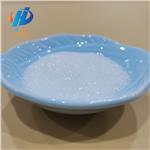
- $10.00/ kg
- 2024-04-25
- CAS:6485-40-1
- Min. Order: 1kg
- Purity: 99.8%
- Supply Ability: 10000ton
- L(-)-Carvone
-
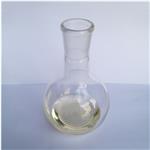
- $0.00 / 1KG
- 2023-09-06
- CAS:6485-40-1
- Min. Order: 1KG
- Purity: 99%
- Supply Ability: 500000kg




